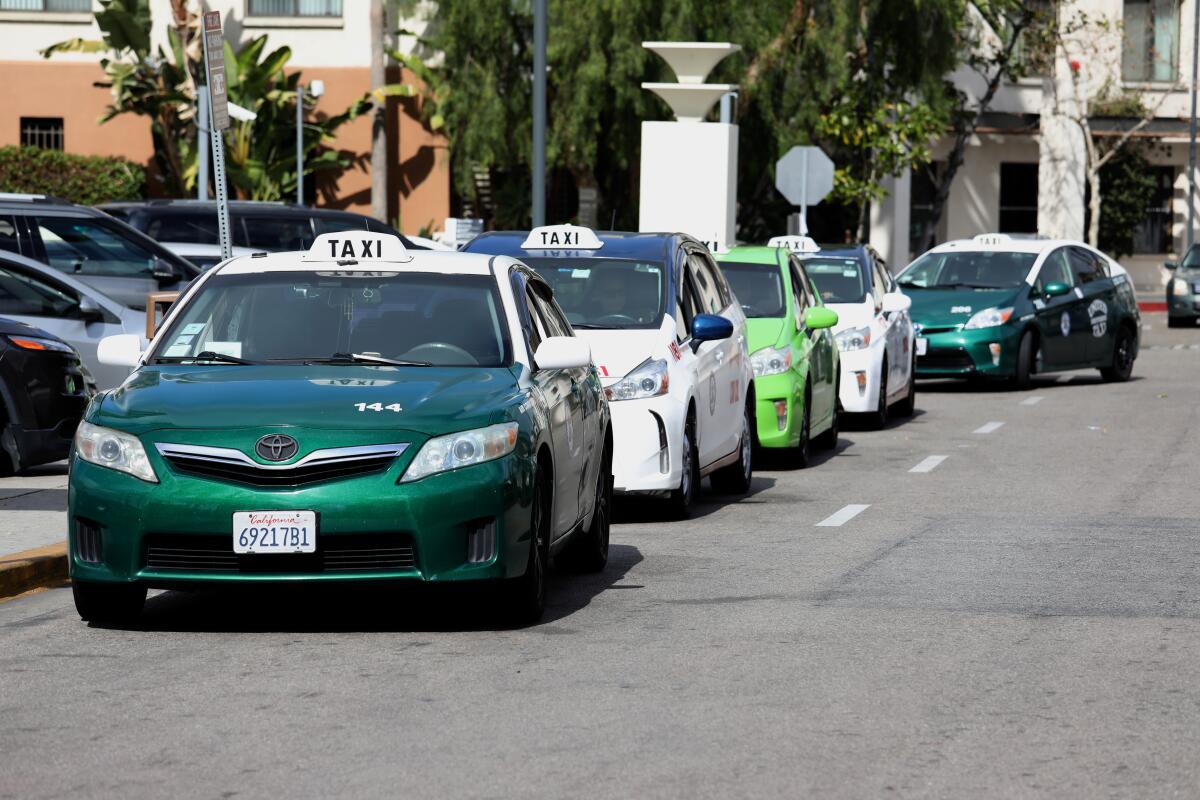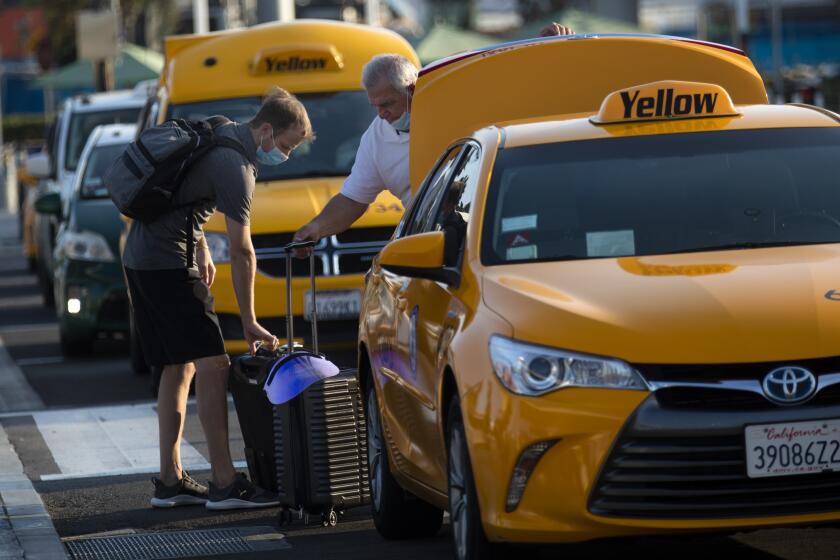Funding problems threaten L.A. Cityride program that helps pay seniors’ cab fare

- Share via
When events like Mother’s Day celebrations at the Korean Senior and Community Center stretch late into the night, or the heat gets unbearable, 76-year old Soon Im Lee jumps into an air-conditioned taxi to get to her South Los Angeles home. For Lee and many other seniors on fixed budgets, it helps that L.A.’s Cityride program pays part of the fare.
“We can’t afford to walk blocks in 90-degree weather to visit our friends,” she said.
But the service that each year provides about 67,700 taxi trips to seniors and those with disabilities has been unfunded for five months, and operators are struggling to keep it running.
“If this was just a private account, we would have shut it down,” said William Rouse, general manager of Yellow Cab of Los Angeles, United Checker Cab and other fleets. “But we’re all pretty sensitive to the needs of the disabled people and the seniors.”
However, he said, if things continue as they have, “it can’t last forever.”
Taxi services have been tapping into their reserves or getting loans to front money to drivers. But those funds are dwindling, and drivers may soon take the hit.
“[Our drivers] are gonna start going to other places. They’re gonna go to the airport; they’re gonna try to subsidize their money through different channels,” said Simon Momennasab, a general manager at Bell Cab. “It’s going to be hard for them. And it’s going to interrupt the service.”
Officials from the Los Angeles Department of Transportation blame the funding delay, which was first reported by the Korea Daily, on a contract mix-up and promise to have it resolved swiftly.
“All taxi companies continue to provide this service as required and there has been no interruption in paratransit services,” LADOT spokesman Colin Sweeney said in an email. Cityride also operates a “dial-a-ride” service that provides members with a subsidized card that can be used for taxi fare or a van ride; Sweeney said that program has been unaffected.
Lee has used the subsidized taxi service to go to a friend’s house and a hospital. She knows many elders in her apartment who take taxis to shop for groceries in Koreatown.
“It can’t go away,” she said of Cityride.
For years, Los Angeles and the taxi industry had a rocky relationship. It seemed to turn a corner this year, when the city shed its taxi franchise regulation, as cab companies try to compete against Uber and Lyft.
Devastated by ride-hailing apps like Uber, L.A. taxis can now access traffic and city data to help dispatch drivers. And they don’t have to be yellow.
A widely hailed permit system was adopted, giving cab companies routes intended to make dispatching drivers more efficient. It sped up permitting and lifted caps on the number of cabs allowed in fleets.
But the Cityride subsidy was tied to the franchise system. When cab companies switched to the permit system, officials didn’t have the authorization that allowed them to pay nonfranchise taxis, even though they no longer existed.
“It’s just so bureaucratic, it’s frustrating,” Rouse said.
Momennasab tried repeatedly to get answers. During the height of the COVID-19 pandemic, there were a few delays in payments, but with ridership down, Bell Cab was able to handle it. With ridership rising, the payment troubles have become worse. Momennasab said it feels like the city no longer cares about the program.
“It’s always, ‘We’re working on it,’ ” he said.
Last week, Los Angeles City Councilmember Mike Bonin introduced a motion that would allow the city to pay taxi companies. A spokeswoman for Bonin said the office acted as soon as it learned of the issue from LADOT.
Although the Cityride program is small, costing the city about $523,000 in the last fiscal year, it has an outsize impact on the communities it services. Metro buses often don’t fit the needs of elderly people and those with disabilities; wait times can be long, and getting onto the raised platform and through a crowded bus can be tough. It’s especially difficult during summer, as few bus stops offer shade.
Neil Richman, who chairs the Aging and Disability Transportation Network, said programs like Cityride serve an important function.
“There are few options available for older adults and people with disabilities that critically need to move around the city,” he said. “Los Angeles needs to support those who provide transportation services.”
More to Read
Sign up for Essential California
The most important California stories and recommendations in your inbox every morning.
You may occasionally receive promotional content from the Los Angeles Times.
















